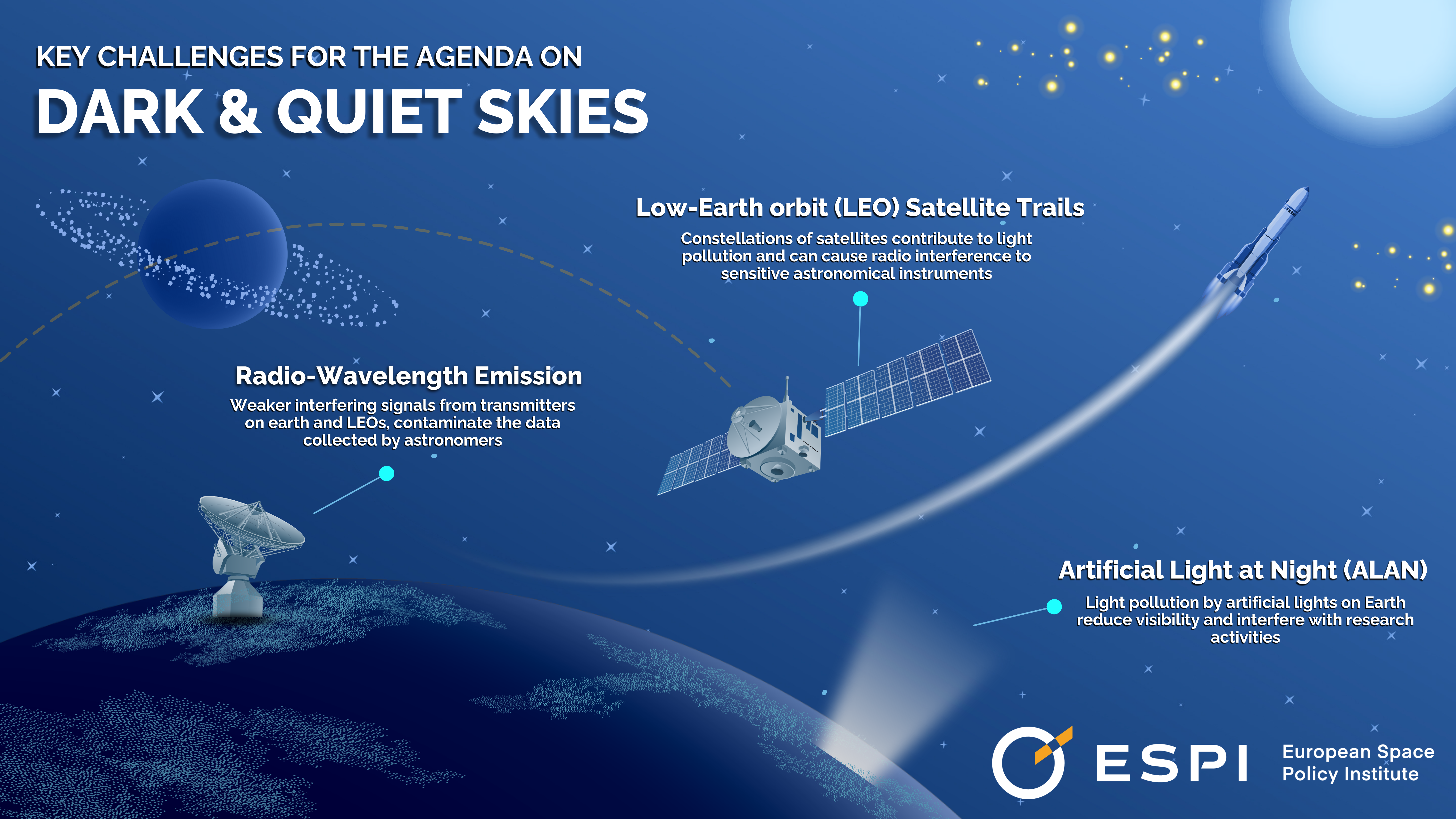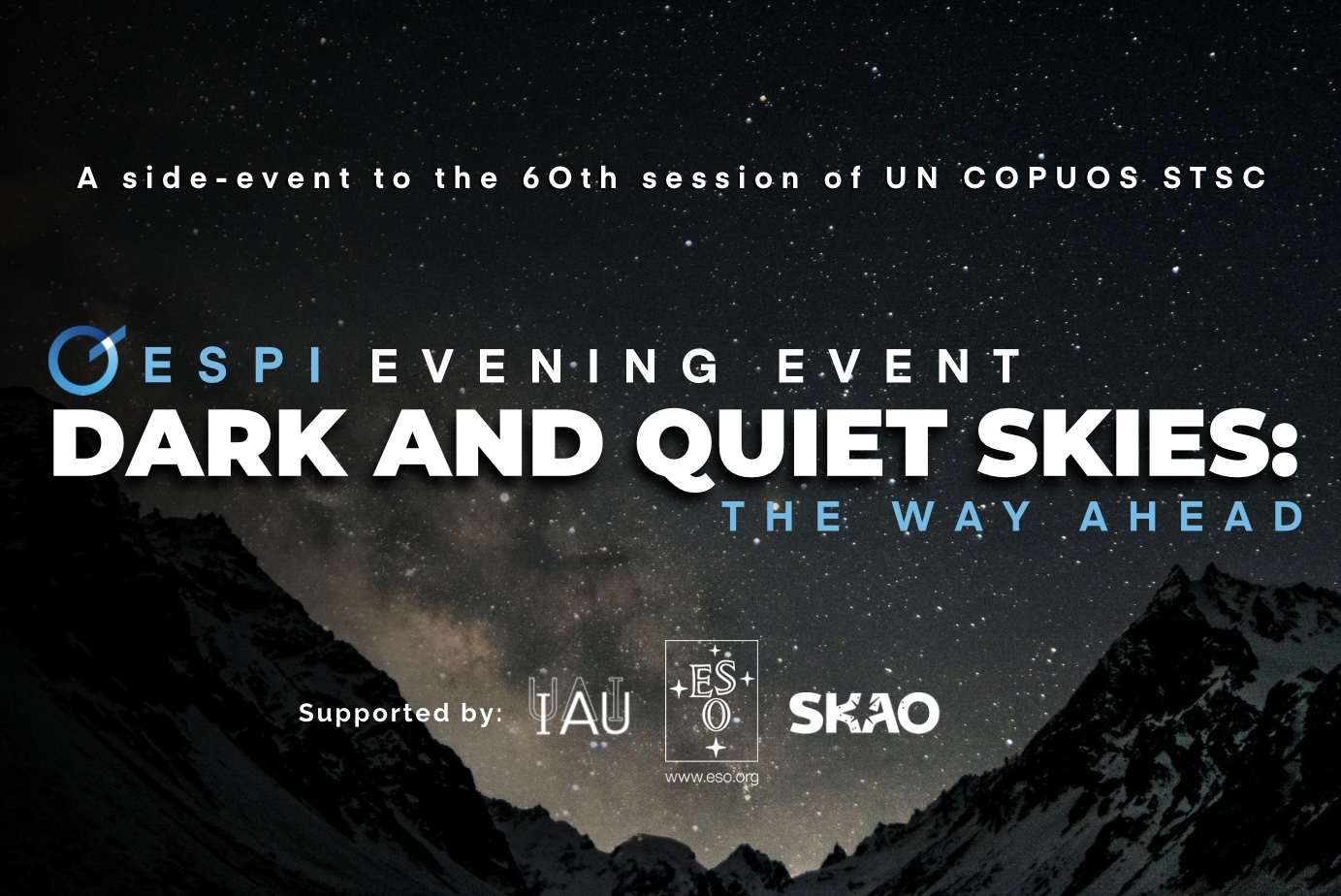
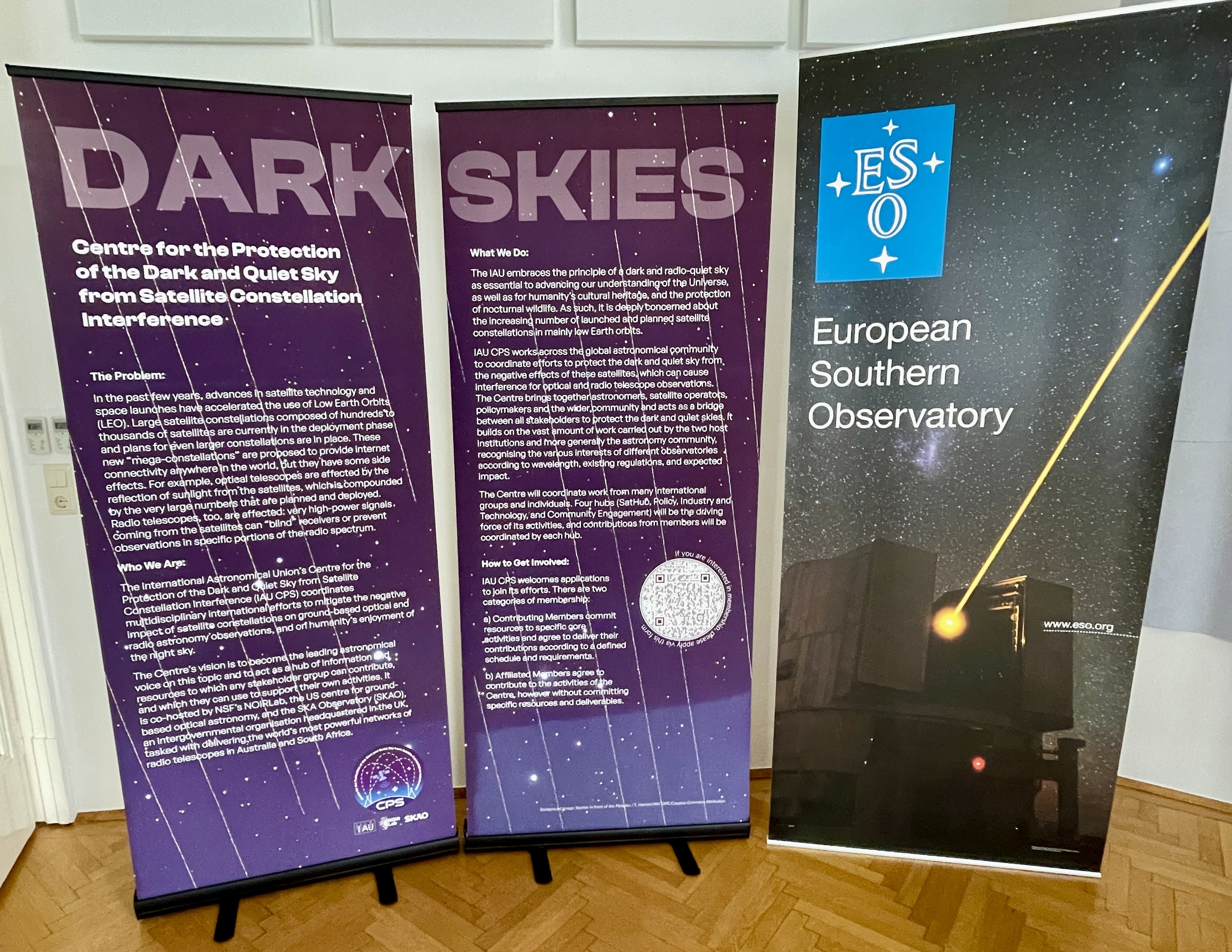
On February 9th, 2023, the European Space Policy Institute (ESPI) hosted an United Nations Committee on the Peaceful Uses of Outer Space (UN COPUOS) side event themed “Dark & Quiet Skies: The Way Ahead”. The event took place at ESPI premises in Vienna, and brought together experts in the space sector to discuss the challenges of protecting the night sky and its impact on science and society.
In 2022, the UN COPUOS approved the discussion on dark and quiet skies as a single item on its STSC agenda. This decision highlighted the growing impact of space activities on the night sky and astronomy, and the importance of protecting these vital resources for scientific discovery. The STSC is scheduled to continue to address this issue during its 60th session from February 6th to 17th, 2023.
The Dark & Quiet Skies event was organized by ESPI with the support of the International Astronomical Union (IAU), the European Southern Observatory (ESO), and the Square Kilometre Array (SKA) Observatory. The event began with a welcome speech by H. Ludwig Moeller, the Director of ESPI, followed by remarks by Prof. Dr. Willy Benz, the President Elect of the IAU. Further Introductory speeches were then given by Dr. Andrew Williams, External Relations Officer at ESO and Co-lead of the IAU CPS Policy Hub, and Mila Francisco, Counselor at the Permanent Representation of Chile to UN in Vienna.
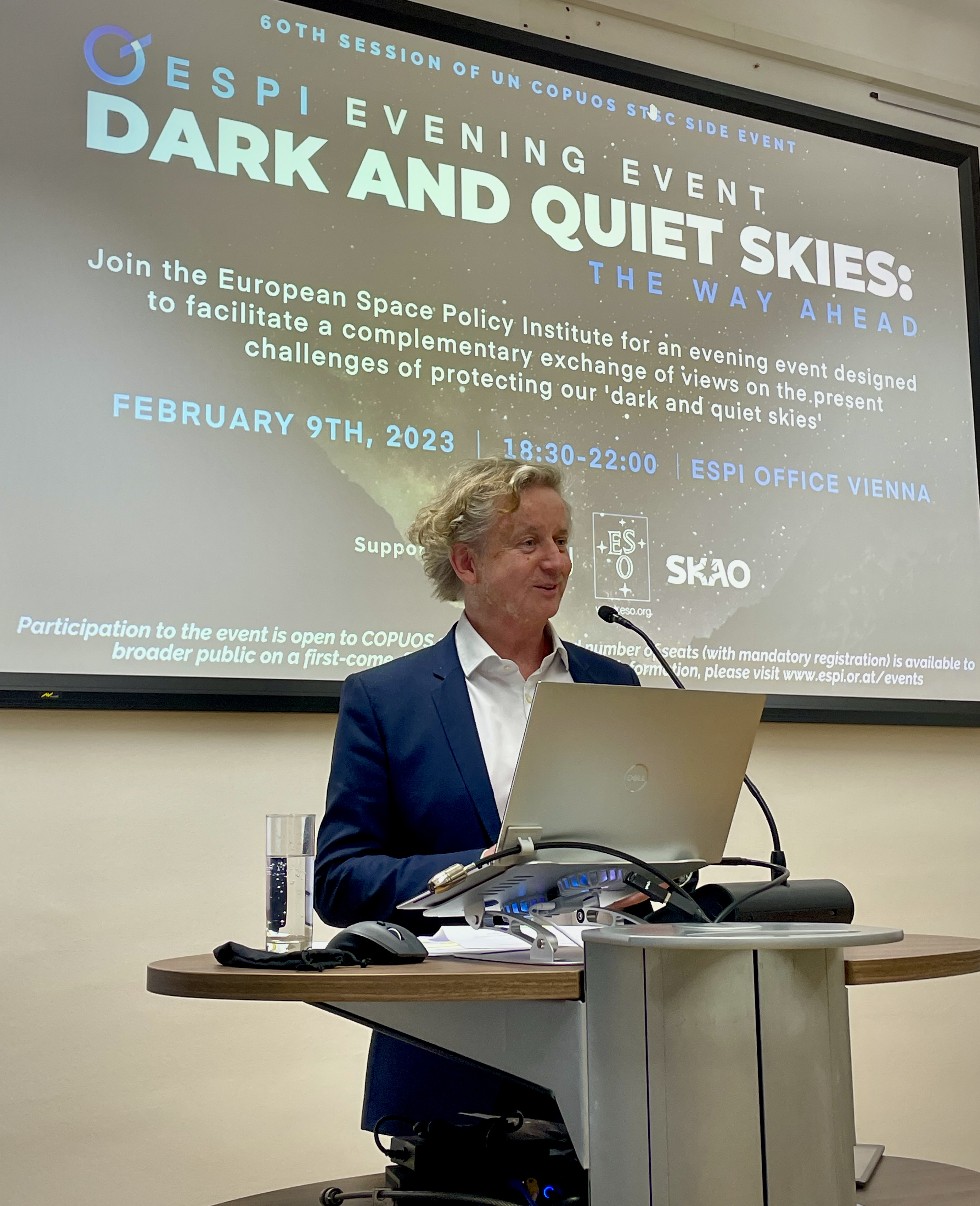
Dr. Williams spoke about the challenges of protecting the night sky and the importance of finding a balance between space activities and astronomical observations. He highlighted the need for collaboration between the scientific and space communities to find solutions to these challenges, highlighting as “the presence of potentially hundreds of thousands of satellites in Low Earth Orbits (LEO) is creating an urgent space governance challenge, impacting both the professional conduct of astronomy and the pristine view of the night sky”.
ESPI’s event was a valuable opportunity to talk informally with COPUOS delegates outside the committee environment about this challenge, bringing additional insights into how we should approach dark and quiet skies protection in the future.”
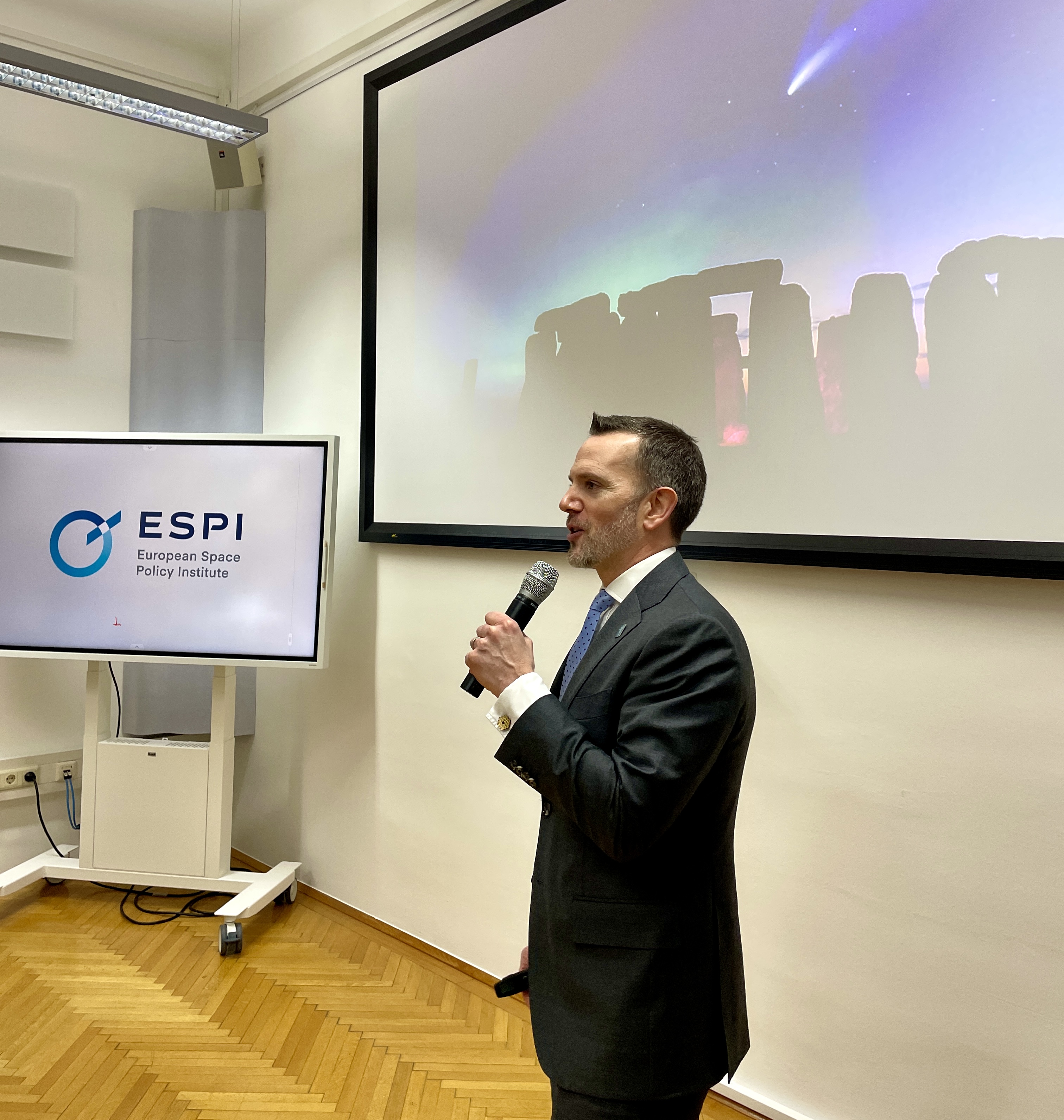
Indeed, recently, advancements in satellite technology and space launches have led to a surge in the usage of LEO. As a result, large satellite constellations made up of hundreds of thousands of satellites are currently being deployed, with even larger constellations being planned for in the future. While these “mega-constellations” aim to bring internet connectivity to every corner of the world, they have unintended consequences. For instance, optical telescopes are impacted by the reflection of sunlight from the satellites, a problem that is exacerbated by the large number of satellites being deployed. Similarly, radio telescopes are also affected as high-power signals from the satellites can obstruct observations in certain parts of the radio spectrum or completely “blind” receivers.
The International Astronomical Union’s Centre for the Protection of the Dark and Quiet Sky from Satellite Constellation Interference (IAU CPS) works to reduce the adverse effects of satellite constellations on ground-based optical and radio astronomy observations and the enjoyment of the night sky by humanity. The Centre aims to be the leading voice in astronomy on this issue and serve as a hub for information and resources that can be used by any stakeholder. It is co-hosted by NSF’s NOIRLab, which is the center for ground-based optical astronomy in the US, and the SKA Observatory, an intergovernmental organization based in the UK tasked with constructing the world’s most advanced network of radio telescopes in Australia and South Africa.
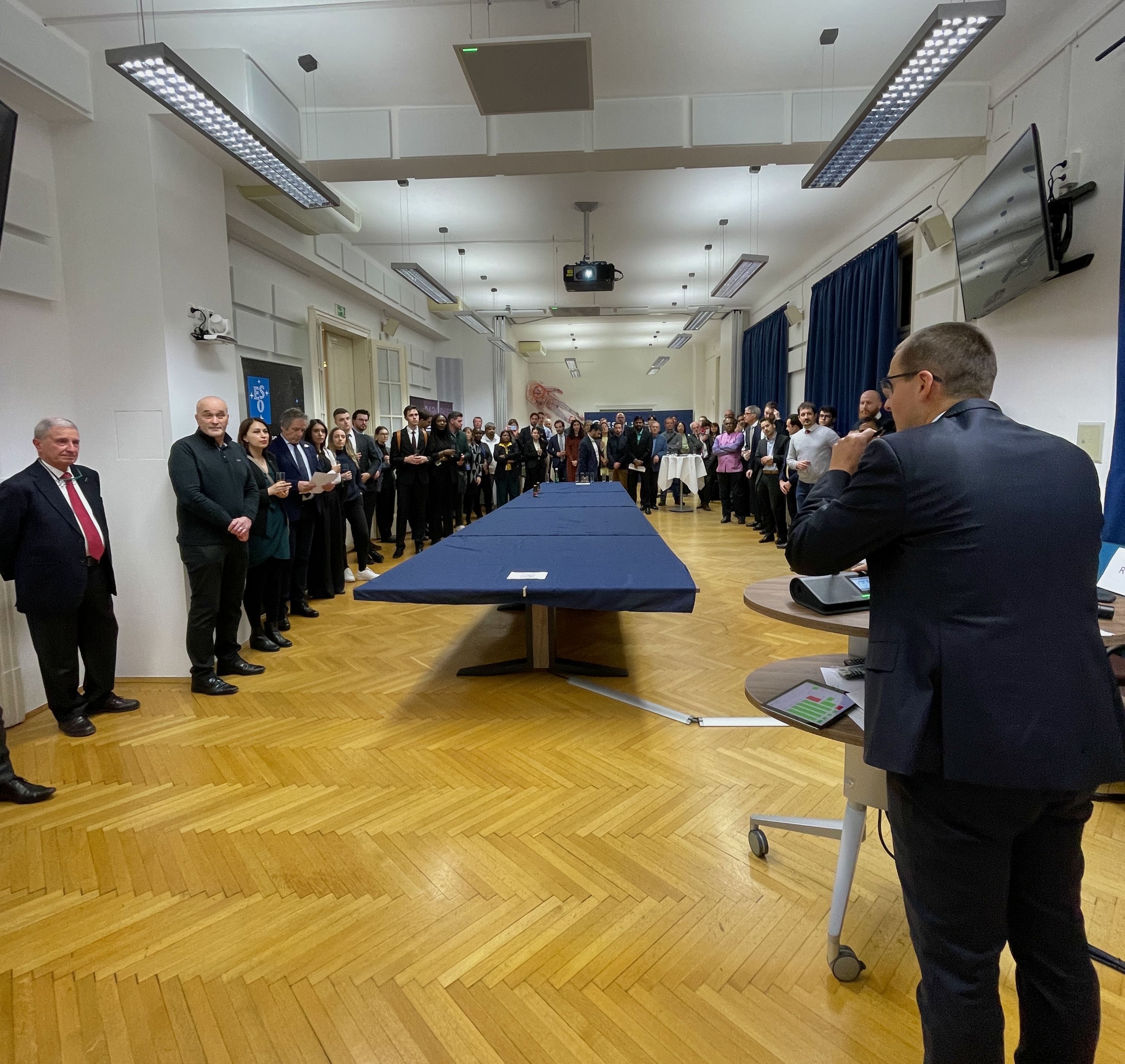
After the insightful presentations by the speakers, a moderated discussion was held to facilitate a dynamic exchange of perspectives on the subject at hand. The attendees then had the chance to deepen their conversations over refreshments. As the Dark and Quiet Skies event came to a close, it marked the end of an successful and informative evening on the crucial subject of protecting dark and quiet skies.
This event was a step towards a better understanding of the challenges encountered by astronomers and space operations in protecting the night sky. The dialogue and exchange of ideas at the event will contribute to the ongoing discussions at the UNCOPUOS and play a role in finding a a harmonious balance between scientific advancement and societal progress.
.
